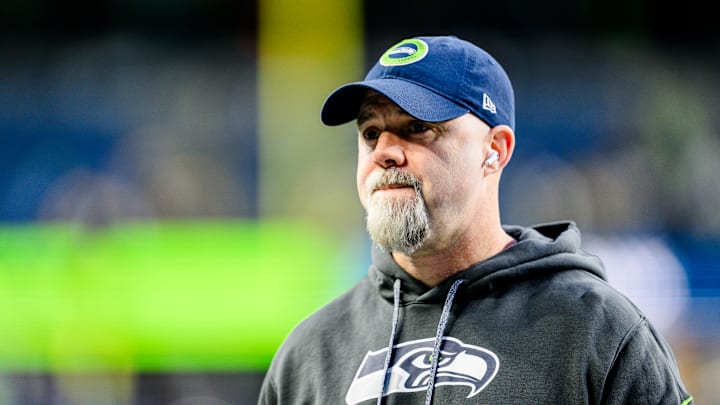Ryan Grubb was fired as the Seattle Seahawks a day after the season ended for one key reason: He did not commit to running the ball. Sure, in college, he designed plays that allowed his receivers to have explosive plays deep down the field, but in the NFL, that does not work as well. One has to be able to run the ball consistently, and Grubb simply refused to do so.
Based on percentage, Seattle threw the ball the fifth-most in the league. The bottom seven teams in the ranking all made the playoffs. 11 of the bottom 18 teams did. Partly, these teams might have been ahead late in games and ran to the ball in an attempt to run out the clock, but their percentages would not be as low when rushing the ball overall.
In the Wild Card round, every team that won, except for the Los Angeles Rams, ran the ball at least 33 times. During the regular season, Seattle averaged 22.5 rushers per game. Oddly, in the five games when running back Zach Charbonnet ran the ball 14 or more times, the team was 5-0. Maybe Charbonnet ran more when the team was ahead, but Grubb often never allowed that to develop.
The Seattle Seahawks needed to emulate the 2024 playoff teams offensively
Running the ball a lot might not be the key to success, but committing to the run might be. The Washington Commanders won in the Wild Card round by rushing for only 82 yards, but they also ran the ball 33 times. This means they did so enough to allow the Tampa Bay Buccaneers not to key solely on rushing the passer. Washington ran 33 times, and they passed 35.
Seattle threw the ball 34.9 times a game, but the difference is in the run-pass balance. The Seahawks were obviously going to toss the ball around a bunch more than they ran the ball, and this made the defensive coordinator's job easier for both pre-game and play-call. Mostly, just send the edge rushers, and the opponent's defense would probably be fine.
Seattle also went 10-7, so that does not mean Seattle was trying to throw the ball a bunch late. In truth, Mike Macdonald's defense put the team in a position to win. Grubb's offense was struggling a bunch in the second half of the season.
And, yes. Some of the blame can be placed on the inefficiency of the offensive line, but often, Grubb gave up on the run early in games. The O-line had little to do with the play-calling when a game was still developing. The unit was not great, but they also weren't solely the reason for Seattle throwing the ball too much.
The good part is that the Seahawks have the skill position pieces in place to run the ball better with an offensive coordinator who understands how to design successful run plays. Kenneth Walker III is capable of being very good, but so are running backs Charbonnet and Kenny McIntosh. Plus, a good run game helps the defense which could mean Seattle wins 11 or 12 games, makes the playoffs, and does what almost all the other playoff teams did in 2024: Attempt to run as much as they pass.
